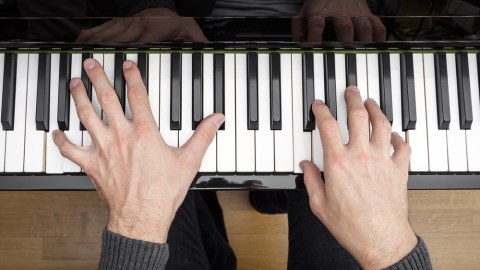Neuroscientists Discover Why Effective Motor Learning Requires Ample Sleep

Have you ever had trouble trying to learn choreography on little sleep? How about a bad piano lesson on the heels of a long day at work? Chances are that memorizing the necessary movement was a struggle, or at least more or a struggle than usual.
While it’s long been known that the capacity to learn motor sequences is augmented by a full night’s rest, the exact reason why had evaded researchers until now. Neuroscientists at the University of Montreal may have finally pinned down the link.
The regions of the brain below the cortex play an important role as we train our bodies’ movements and, critically, they interact more effectively after a night of sleep.
According to the study’s abstract, motor learning is associated with the striatum, located deep within the brain. Optimal memorization relies on good communication between the striatum and other subcortical regions. According to Karen Debas, the study’s lead author, sleep helps establish that clear connection:
“When consolidation level is measured after a period of sleep, the brain network of these areas functions with greater synchrony, that is, we observe that communication between the various regions of this network is better optimized. The opposite is true when there has been no period of sleep.”
This means, as the Science Daily article suggests, those who are learning to play piano should take their lessons in the morning after a full night’s rest. The study also suggests that time would be better spent rehearsing dance routines or actor blocking in the morning rather than late at night. Of note: sleep is important even if you’re not Baryshnikov or Neil Patrick Harris. Do yourself a favor and catch those zzz’s anyway.
Here’s a link to the study. You can read more at Science Daily.
Photo credit: Markus Gann / Shutterstock




